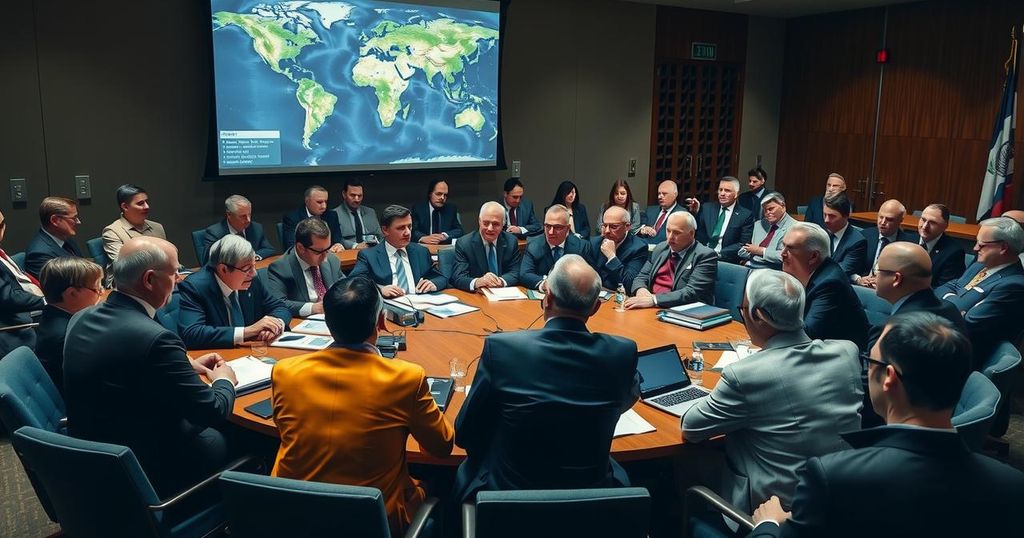At least 1,773 fossil fuel lobbyists are attending the U.N. climate negotiations in Baku, Azerbaijan, significantly outnumbering delegates from vulnerable nations. Climate advocacy groups are concerned about the influence these lobbyists could exert on climate policy, stressing that their involvement undermines the integrity of the negotiations.
Recent reports indicate that over 1,773 fossil fuel lobbyists are participating in the ongoing U.N. climate negotiations in Baku, Azerbaijan. This sizeable presence has raised concerns among climate advocacy groups, who believe that such lobbyists should not have influence in these crucial discussions aimed at developing climate policy. Kathy Mulvey, a campaigner from the Union of Concerned Scientists, emphasized that the involvement of fossil fuel corporations is akin to compromising the integrity of the negotiations, stating, “allowing them that access is like setting the cat loose among the pigeons.” The coalition of climate groups meticulously analyzed the provisional list of attendees to identify individuals affiliated with fossil fuel interests. Their findings revealed that the number of fossil fuel representatives surpasses that of delegates from nearly all countries, with exceptions for Turkey, Brazil, and Azerbaijan. Notably, the fossil fuel lobbyists outnumber delegates from the world’s most vulnerable nations, which sent a combined total of 1,033 delegates to the negotiations. ExxonMobil’s delegation is particularly striking, as it is equal in size to that of Guyana, a country significantly threatened by climate change. Critics point to the long history of deception and obstruction in climate action by major corporations, particularly ExxonMobil, as a reason to exclude fossil fuel lobbyists from meaningful participation in climate decision-making processes. Mulvey stated, “Corporations such as ExxonMobil, which have engaged in a decades-long campaign to deceive the public and policymakers and block or delay climate action, have repeatedly shown that they can’t be trusted as good-faith players in climate policymaking.”
As global discussions surrounding climate change intensify, the influence of fossil fuel lobbyists remains a contentious issue. The U.N. climate negotiations serve as a critical platform for establishing policies aimed at combating climate change and reducing greenhouse gas emissions. However, the involvement of lobbyists who represent fossil fuel interests poses challenges to achieving objective outcomes that prioritize environmental sustainability. The disproportionate representation of such lobbyists compared to vulnerable nations raises questions about the integrity of the negotiations and the commitment to addressing climate crises.
The presence of 1,773 fossil fuel lobbyists at the U.N. climate negotiations in Baku underscores a significant imbalance that could hinder effective climate policy development. Advocacy groups contend that allowing these lobbyists to participate compromises the negotiations’ integrity, urging a reevaluation of who should influence such critical discussions. As highlighted by experts, the voices of nations most affected by climate change deserve precedence over corporate interests that have historically obstructed meaningful progress.
Original Source: e360.yale.edu






